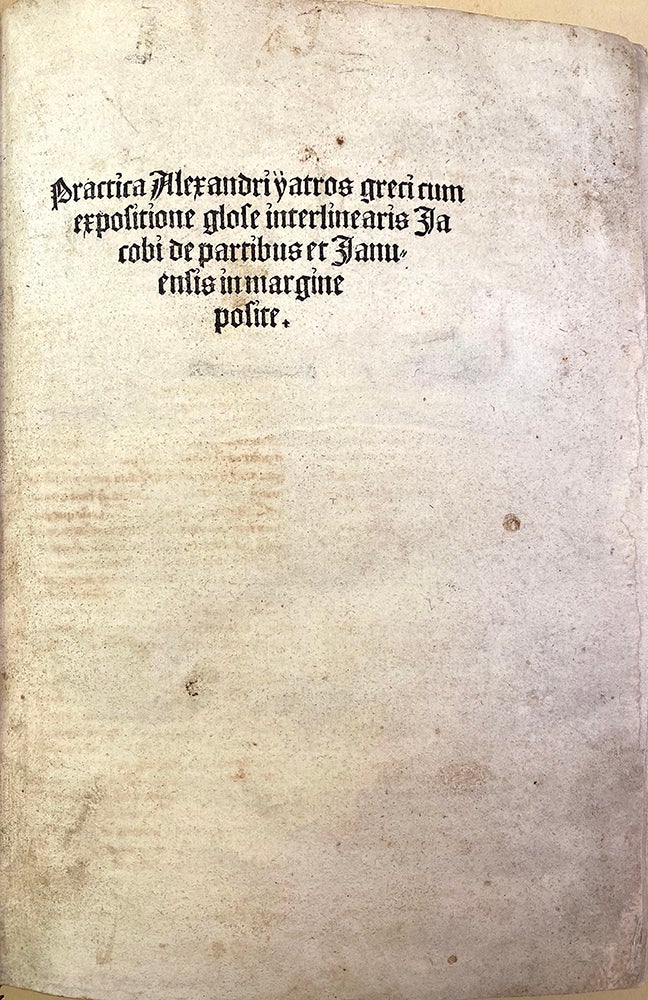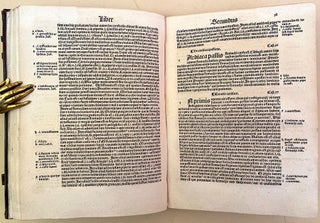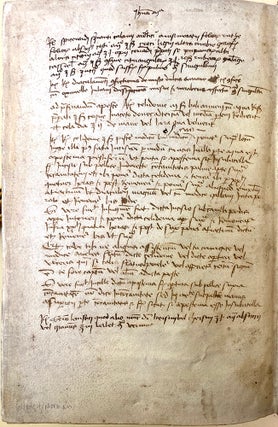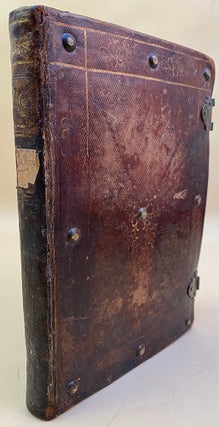Practica Alexandri yatros greci cum expositione glose interlinearis Jacobi de Partibus et Januensis in margine posite
Publisher Information: Lyon: Franciscus Fradin, 1504.
Alexander of Tralles (ca. 525 – ca. 605). Practica Alexandri yatros grecium expositione glose interlinearis Jacobi de partibus et Januensis in margine posite. 4to. [8], 93, [1]ff. Lyon: Franciscus Fradin, 1504. 241 x 162 mm. 18th- or 19th-century diced calf gilt, brass bosses and clasp fittings in imitation of a 16th-century binding, light rubbing and wear, remains of paper label on spine. Margin of first leaf repaired, stamp removed from second-to-last leaf, minor foxing and soiling, but very good. A few marginal annotations in an early hand (some cropped), verso of last blank with a 31-line inscription in what may be the same early hand.
Editio princeps of Jacques Despars’s Latin translation of the Twelve Books on Medicine by Alexander of Tralles, perhaps the most eminent physician from the early Byzantine era. Rare—there are no auction records for this title, and OCLC does not list any copies in North American libraries, citing only six actual copies overall (Strasbourg, Bib. Ste.-Genevieve, Lyon, Danish Library, Bibliothèque Nationale, Univ. Aberdeen). This is the first copy of the 1504 Practica that we have handled in our over fifty years in the trade.
Alexander was one of several physicians in late antiquity who played a crucial role in “shaping a medical tradition and transfer of medical knowledge . . . In particular, Alexander of Tralles amalgamates his abilities as a compiler with his own extensive clinical experience, producing works which are marked by a strong authorial presence. Even though he was much influenced by the theories and practices of Galen and followed a Hippocratic understanding of humoral pathology and physiology, he kept on striving to find new ways of treating disease and researching the effectiveness of his therapies. He conscientiously cited earlier authorities and did not hesitate to disagree even with Galen when common sense demanded . . . Alexander’s main work, the Therapeutics [the present work], follows the well-established medical tradition of writing a capite ad calcem (from head to toe) and has details on diagnosis and treatment of diseases divided into twelve books” (Bouras-Vallianatos, pp. 338-339).
Twelve Books is the largest surviving work by Alexander. Most of his other writings are lost, although they are known to have once been available in Greek, Latin, Hebrew and Arabic versions. Garrison-Morton.com 34. P. Bouras-Vallianatos, “Clinical experience in Late Antiquity: Alexander of Tralles and the therapy of epilepsy,” Medical History 58 (2014): 337-353.
Book Id: 46062Price: $14,500.00




